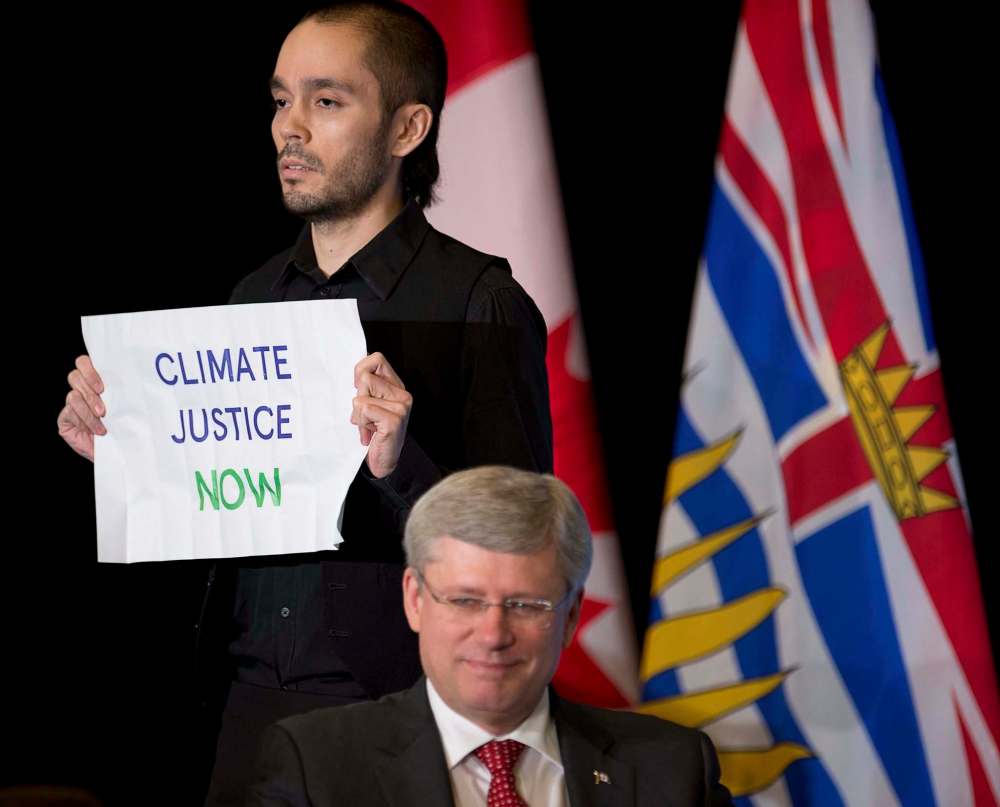Harper government obstructed scientists, study finds
Advertisement
Read this article for free:
or
Already have an account? Log in here »
To continue reading, please subscribe:
Monthly Digital Subscription
$0 for the first 4 weeks*
- Enjoy unlimited reading on winnipegfreepress.com
- Read the E-Edition, our digital replica newspaper
- Access News Break, our award-winning app
- Play interactive puzzles
*No charge for 4 weeks then price increases to the regular rate of $19.95 plus GST every four weeks. Offer available to new and qualified returning subscribers only. Cancel any time.
Monthly Digital Subscription
$4.99/week*
- Enjoy unlimited reading on winnipegfreepress.com
- Read the E-Edition, our digital replica newspaper
- Access News Break, our award-winning app
- Play interactive puzzles
*Billed as $19.95 plus GST every four weeks. Cancel any time.
To continue reading, please subscribe:
Add Free Press access to your Brandon Sun subscription for only an additional
$1 for the first 4 weeks*
*Your next subscription payment will increase by $1.00 and you will be charged $16.99 plus GST for four weeks. After four weeks, your payment will increase to $23.99 plus GST every four weeks.
Read unlimited articles for free today:
or
Already have an account? Log in here »
Hey there, time traveller!
This article was published 06/12/2016 (3314 days ago), so information in it may no longer be current.
The media didn’t exaggerate the previous Harper government’s suppression of scientific information, says the author of a study on “un-muzzling” the science community.
Talia Wells said she expected to find that media overstated the extent to which the previous government stonewalled findings by taxpayer-funded scientists.
“I have yet to encounter a federal scientist who said that it was any way other than that,” Wells said in an interview at the Arctic Net conference in Winnipeg, where she presented some of her preliminary findings.

Not releasing scientific studies is dangerous, said Wells, a political science masters student at the University of Calgary.
“I think there’s an impact on democracy. In order for people to vote they need to be well-informed.”
Furthermore, Wells questioned who owns the information: the taxpayers who fund it, or the politicians controlling it for their own purposes.
The situation has changed with the new federal government, she said.
“The unmuzzling seems to be quite significant. There was just all of a sudden a relaxation of the rules, and scientists understood they could speak to media the way they had before,” said Wells.
Her findings are just a piece of a bigger research project examining Northern research and how it is communicated, the usability of the science and its receptivity with governments.
Much of Wells’ study examines the difficulty scientists have communicating their work to the general public. Courses are sprouting up at universities to help scientists get their research across to the public.
“Scientists are inherently not good communicators,” she noted.
Wells said the Harper government wanted to control the message, as governments are wont to do, but controlled scientists more than previous governments.
“The control of science just fed into the control of the message,” she said.
It will remain to be seen how openly the Trudeau government will treat scientific information as it moves into controversial issues.
“I think it will be interesting to see, with approval of pipelines, with hydro dams,” said Wells.
“There are going to be more contentious issues and how government plays that is going to be something to watch.”
bill.redekop@freepress.mb.ca


